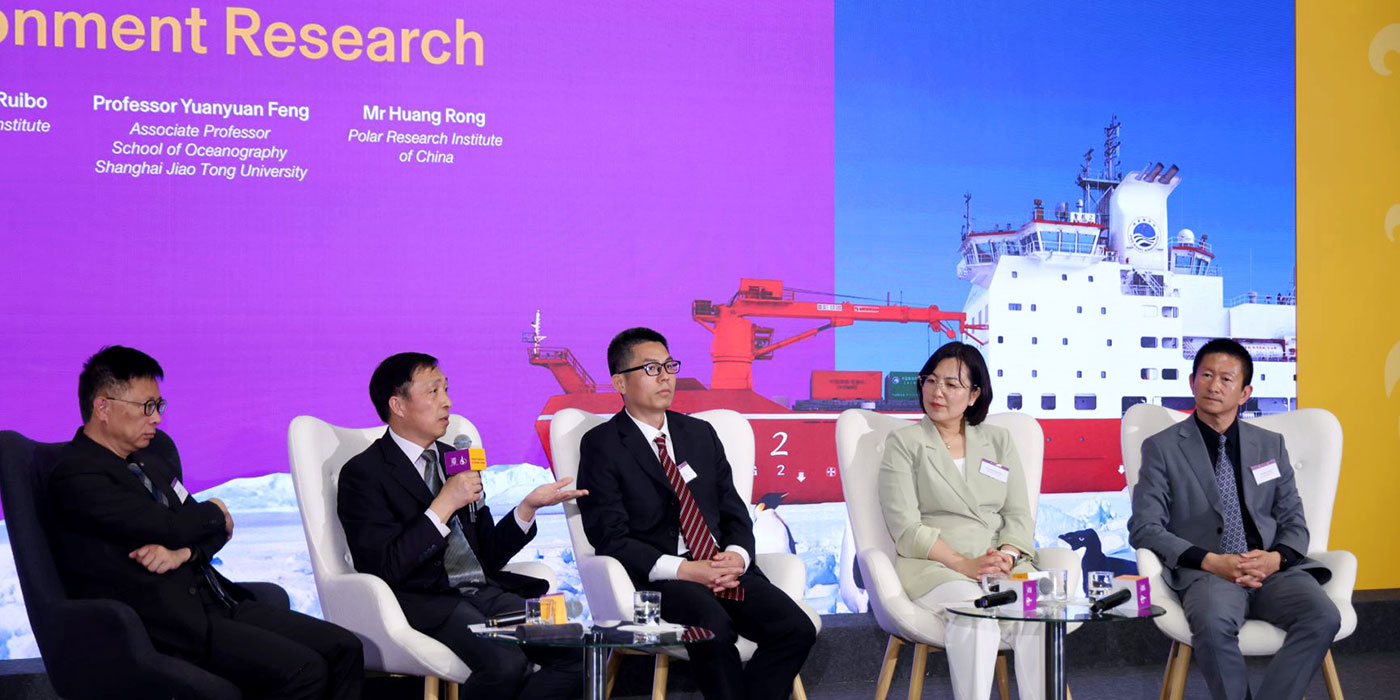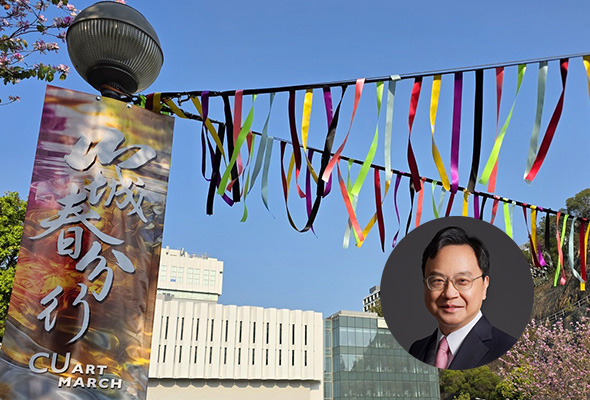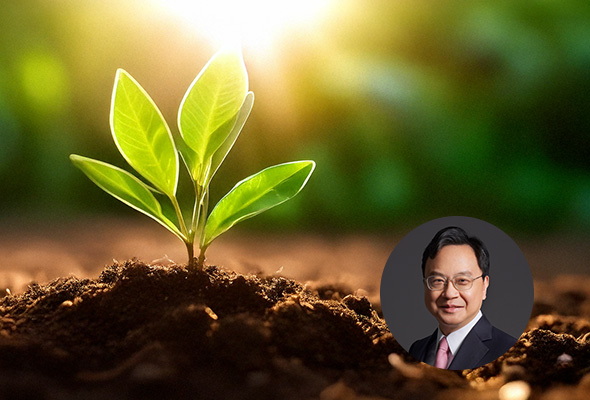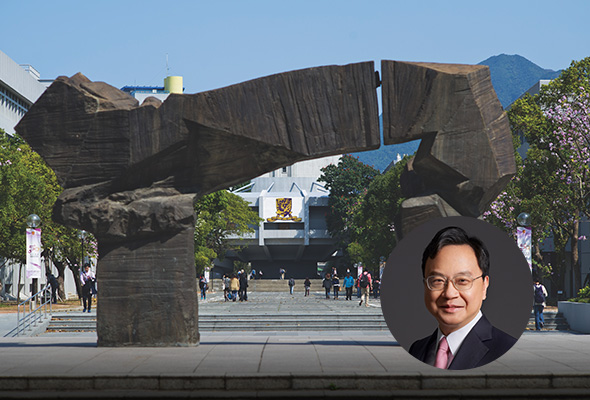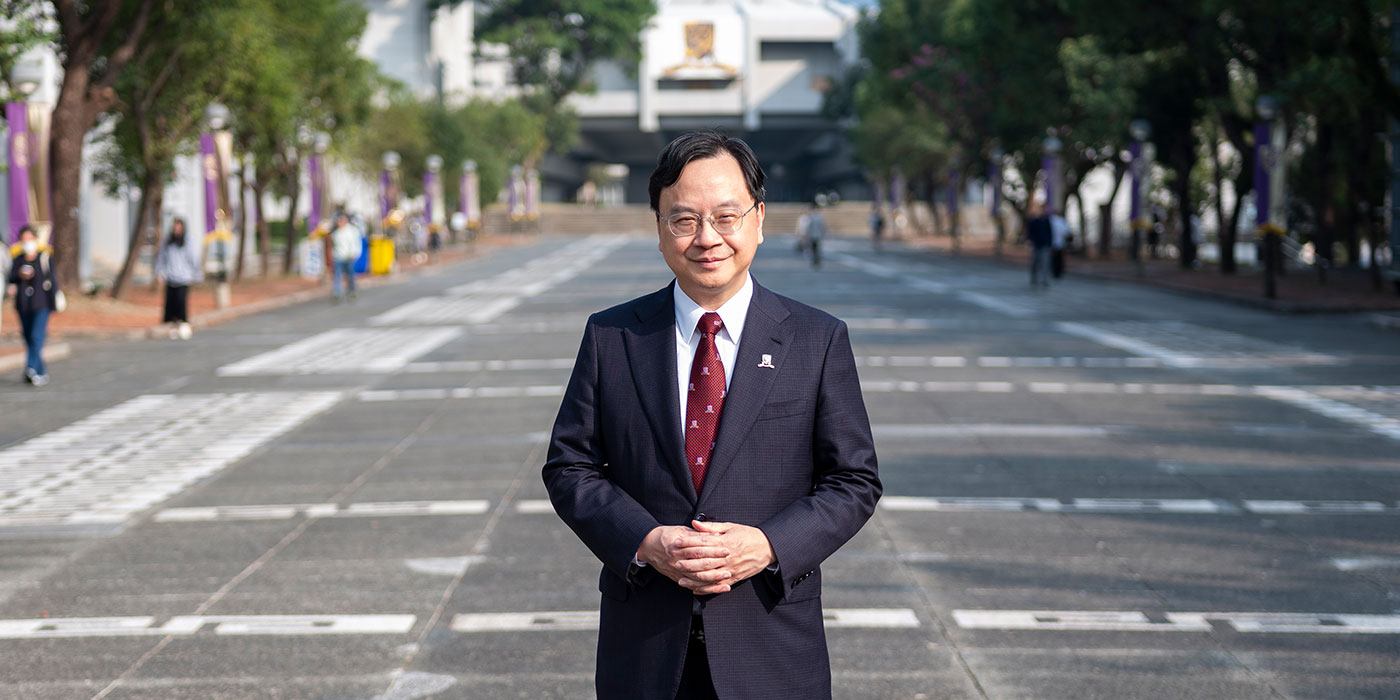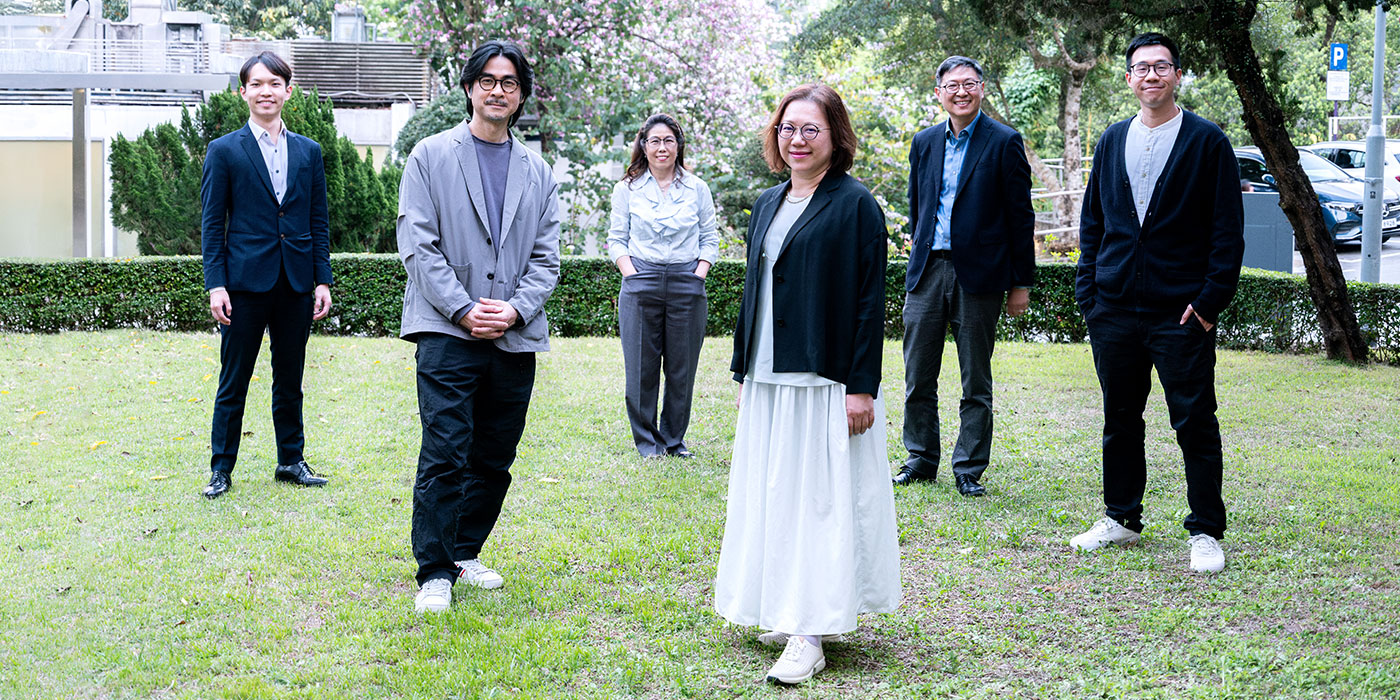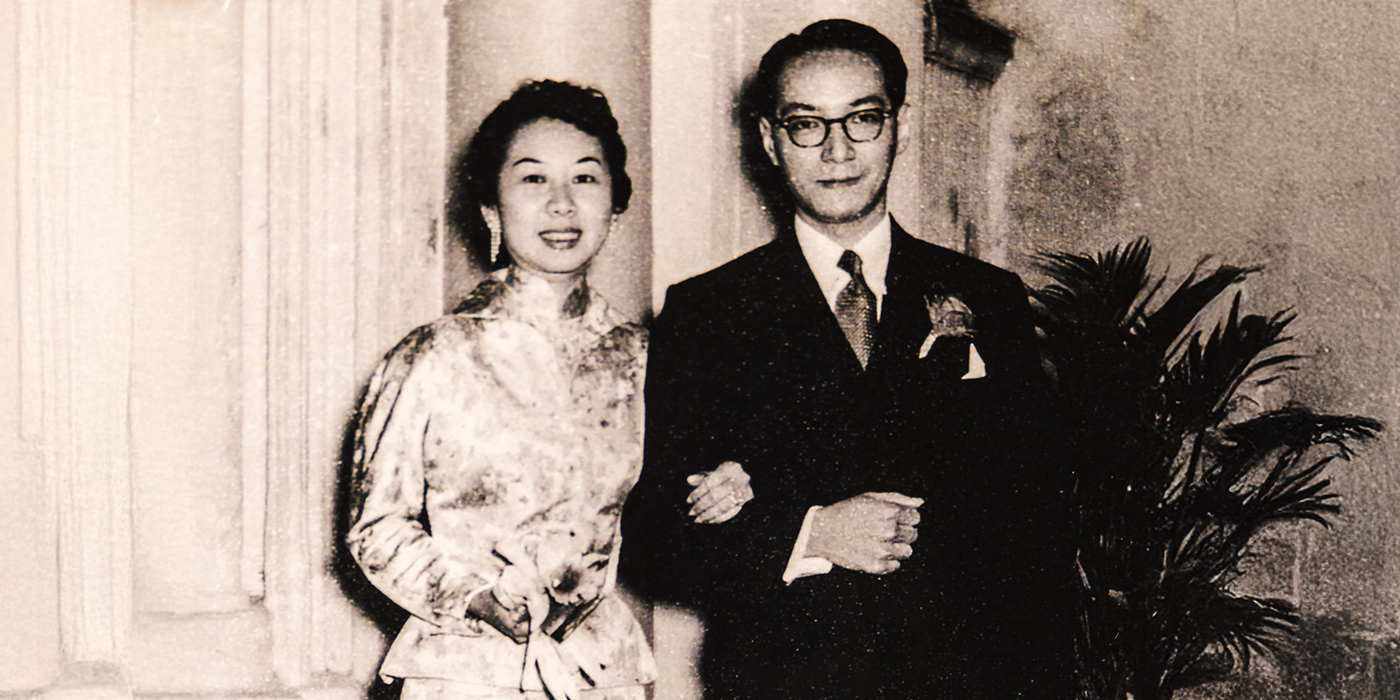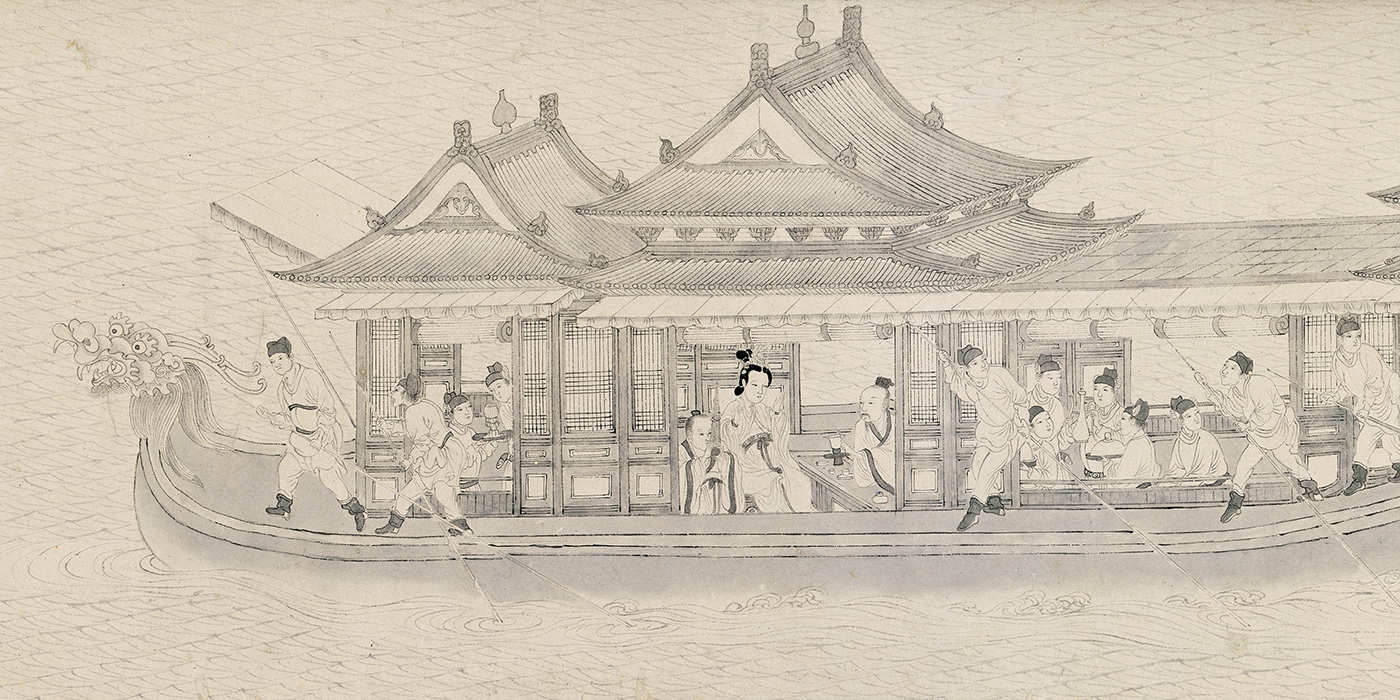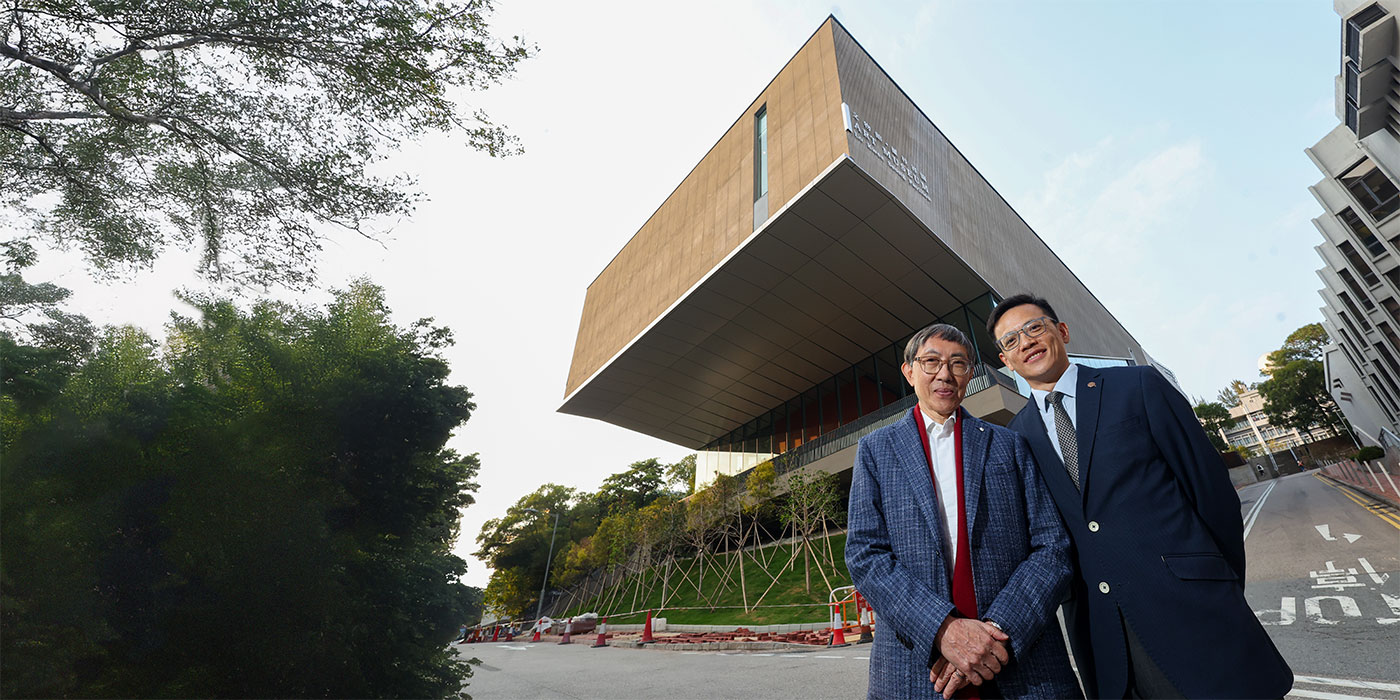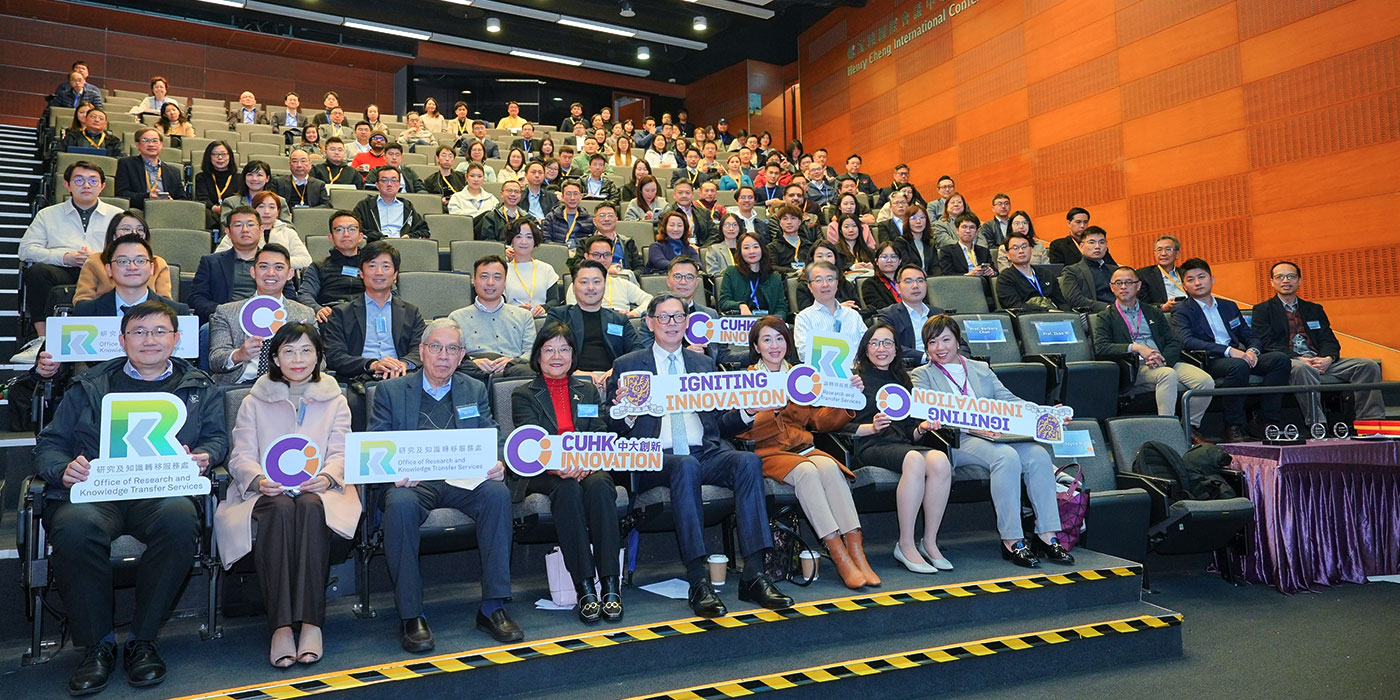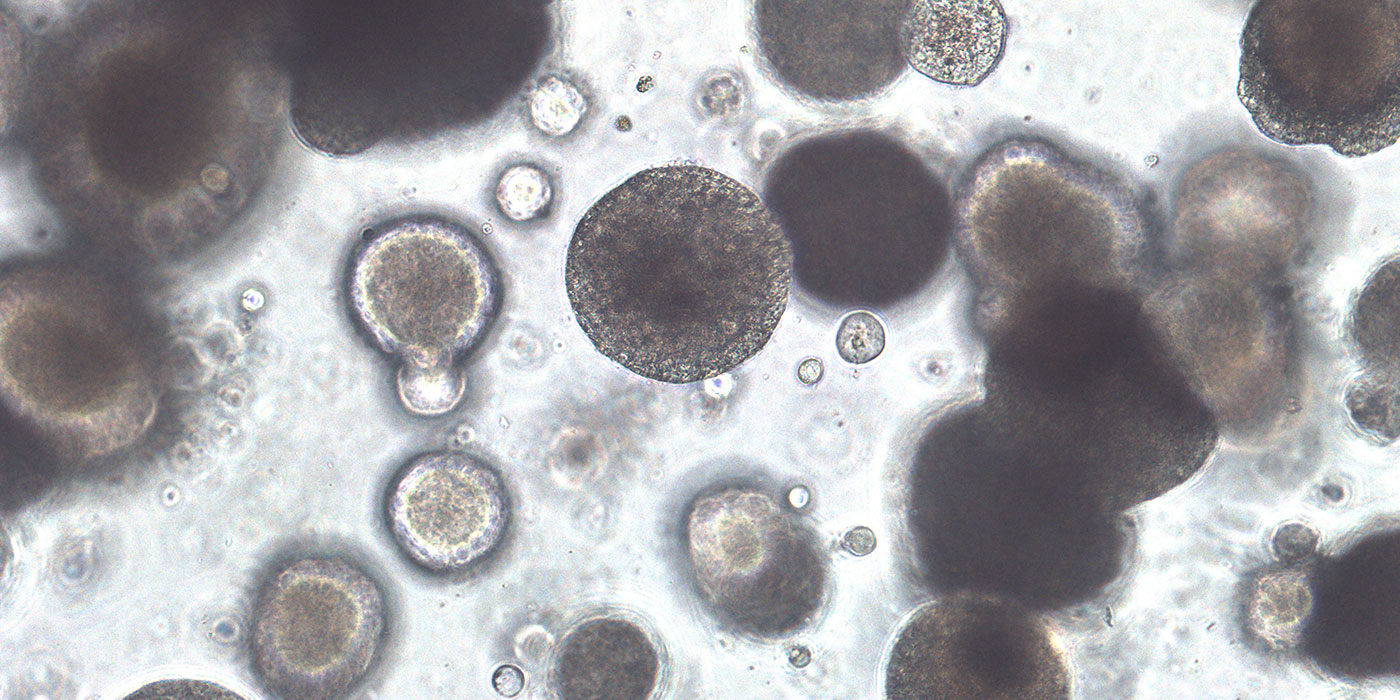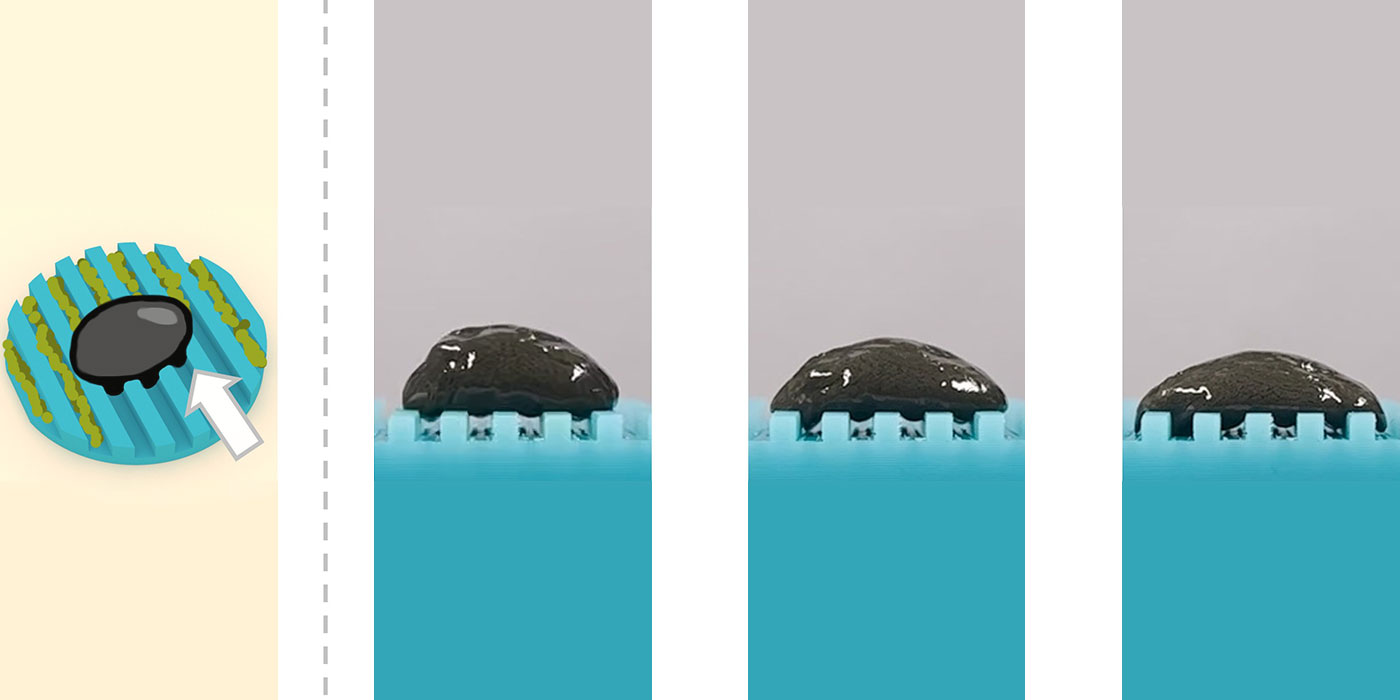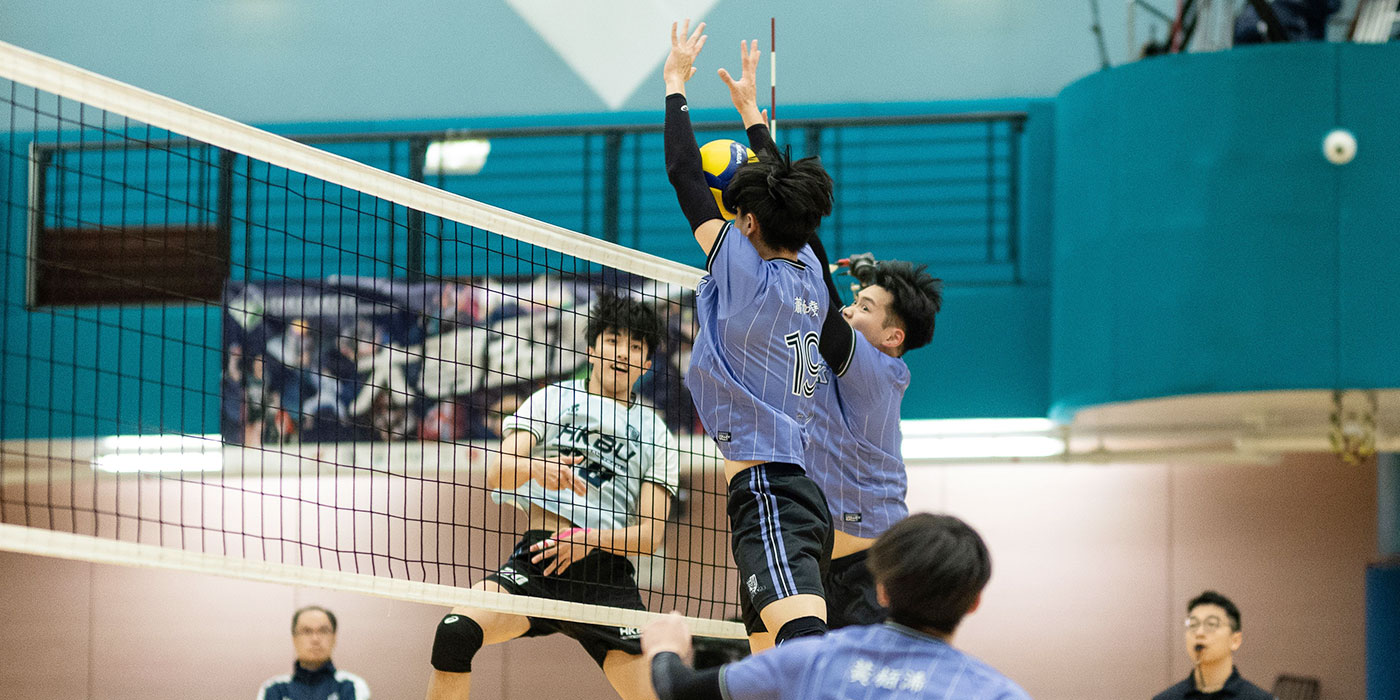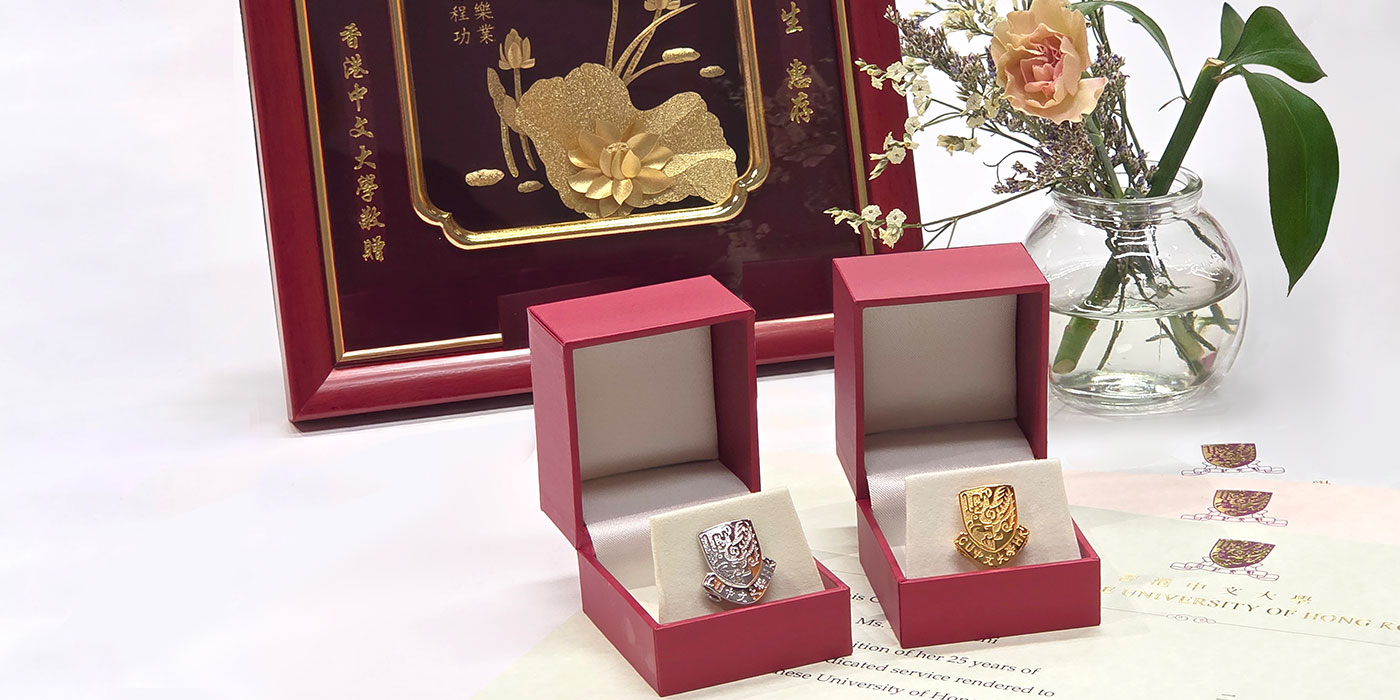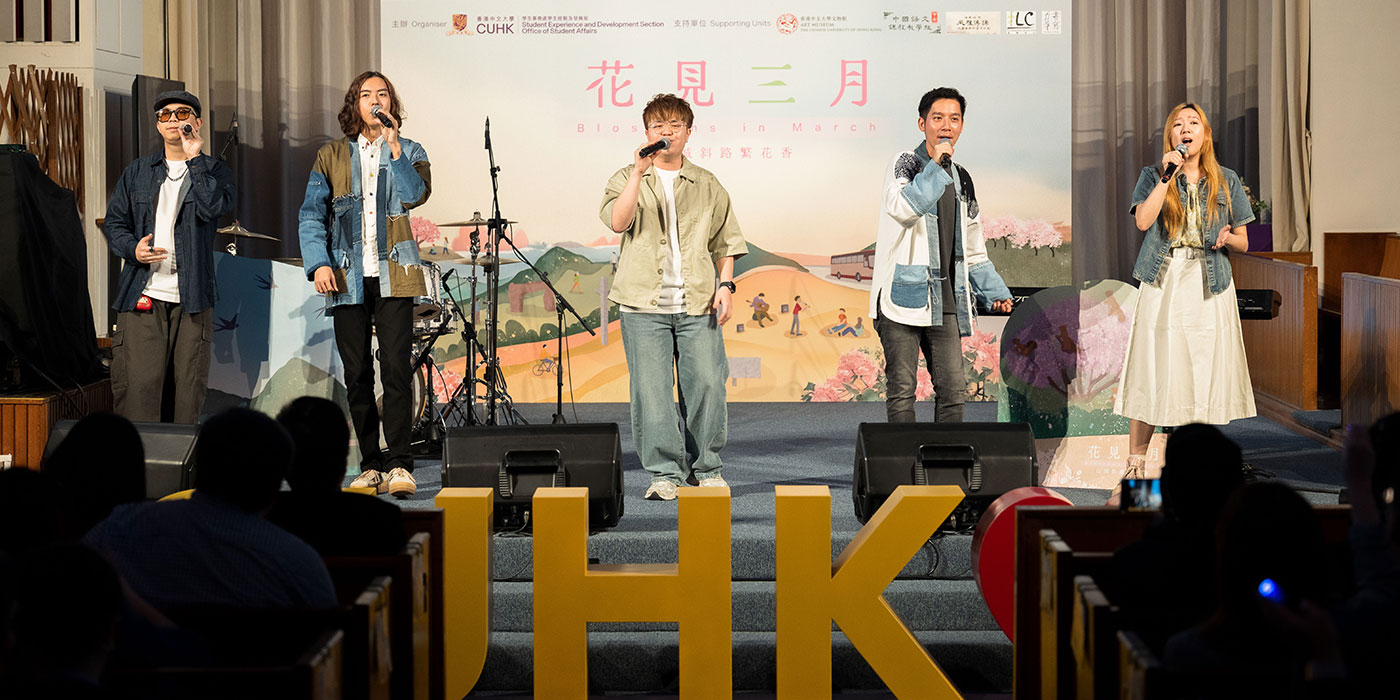All in the same boat
Global climate conference held alongside Xue Long 2’s visit
The ship sailed steadily into Victoria Harbour. Sliding in between the fishing vessels and the ferries gathered to witness its arrival, its red hull touched lightly against the pier at Ocean Terminal, and gradually came to a halt. Watched by curious bystanders, its gangway descended, and those onboard slowly fanned out onto the carpeted dockside.
The ship was the Xue Long 2 (“Snow Dragon 2”), China’s first domestically-built polar exploration vessel. It had stopped in the city for five days on its way home to Shanghai after completing its 40th Antarctic expedition. CUHK was the only academic partner for activities organised around the visit, and over 150 guests from CUHK boarded the vessel during its stay in Hong Kong.
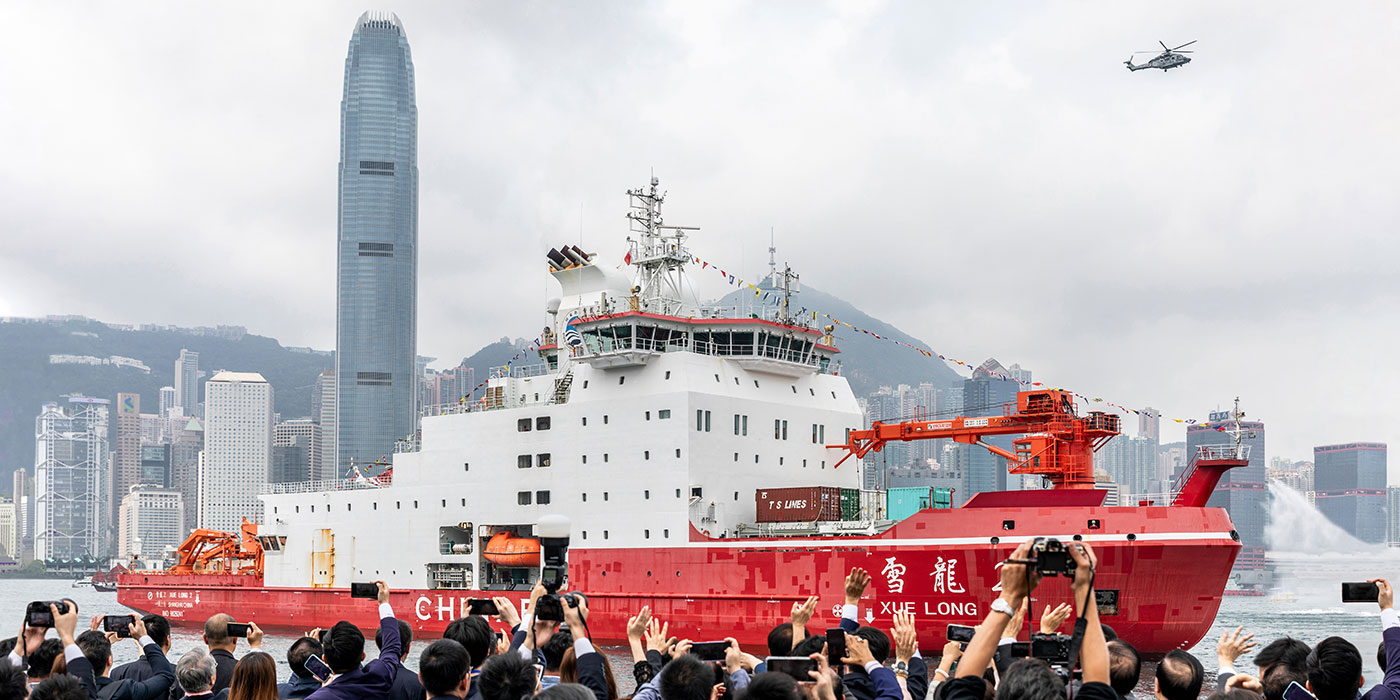
‘To go far, you must go together’
Among these activities was the Global Conference on Climate Change, organised on campus by CUHK on 9-10 April. Over 2,000 scientists, policymakers, industry leaders and guests came together at the Yasumoto International Academic Park to discuss the latest ideas and findings in the context of polar studies and climate change. The attendees were from all walks of life, and included government officials, CUHK academics, and students.
In his welcoming remarks, CUHK Vice-Chancellor and President Professor Rocky S. Tuan expressed hopes for the two-day event to address the issue of climate change and how green transformation might be achieved. Quoting an old African proverb, he said: “‘To go fast, you can go alone; but to go far, you must go together’. So may this conference be a transformative and fruitful experience for all of us to go together, and far, on the path of sustainability.”
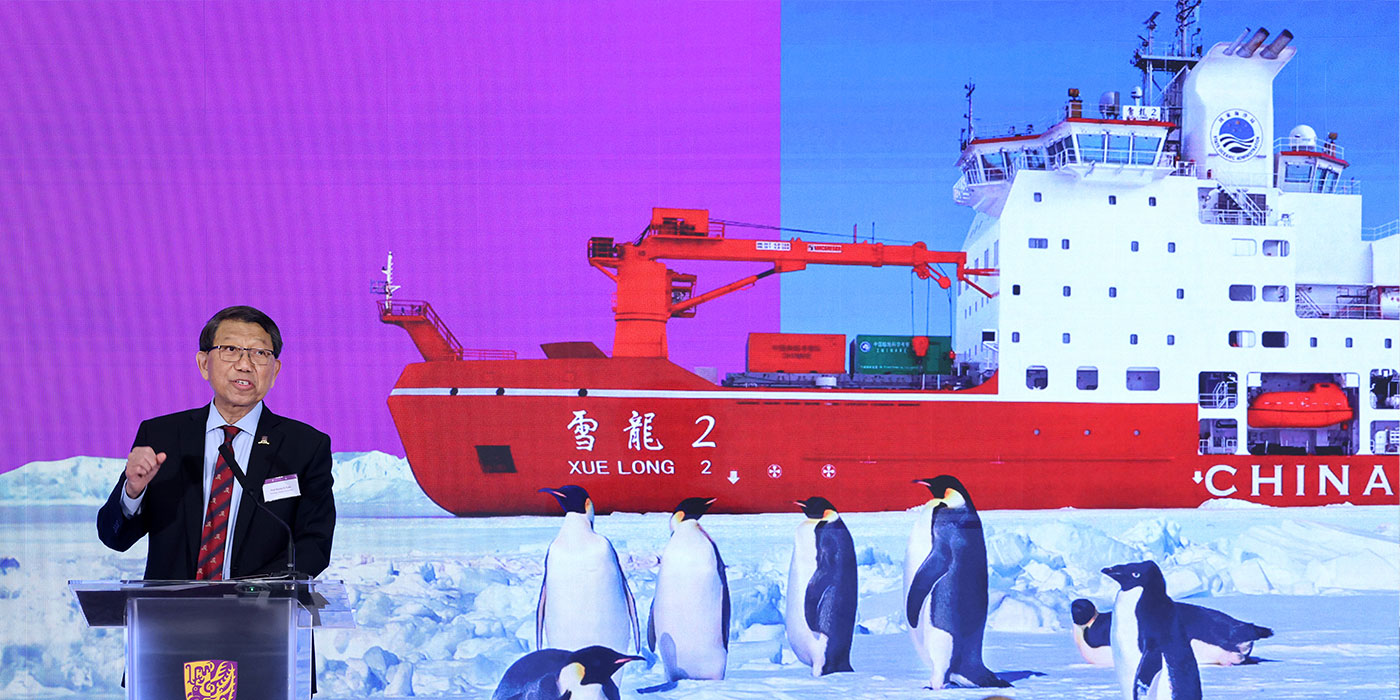
Chen Danhong, Director General at the Department of International Cooperation of China’s Ministry of Natural Resources, encouraged all present to cooperate in their response to climate change: “No country can stay immune or remain aloof. We must keep strengthening scientific research, make technological breakthroughs, cooperate in polar governance, and share solutions.”
The future in their hands
Wong Kam-sing, Hong Kong’s former Secretary for the Environment, was among the keynote speakers. In his speech, he referred to weather events that had a severe impact on the city in the previous year — extreme heat, super typhoons and record-breaking rainfall. He highlighted the need for collaborative efforts to tackle such challenges, especially by engaging the young. Recalling his experience of drawing climate action plans while in Government, he emphasised the importance of embracing “education, research and young people”, adding how back then, “some students of CUHK, who have now become professors here, all supported more ambitious and positive climate action.”
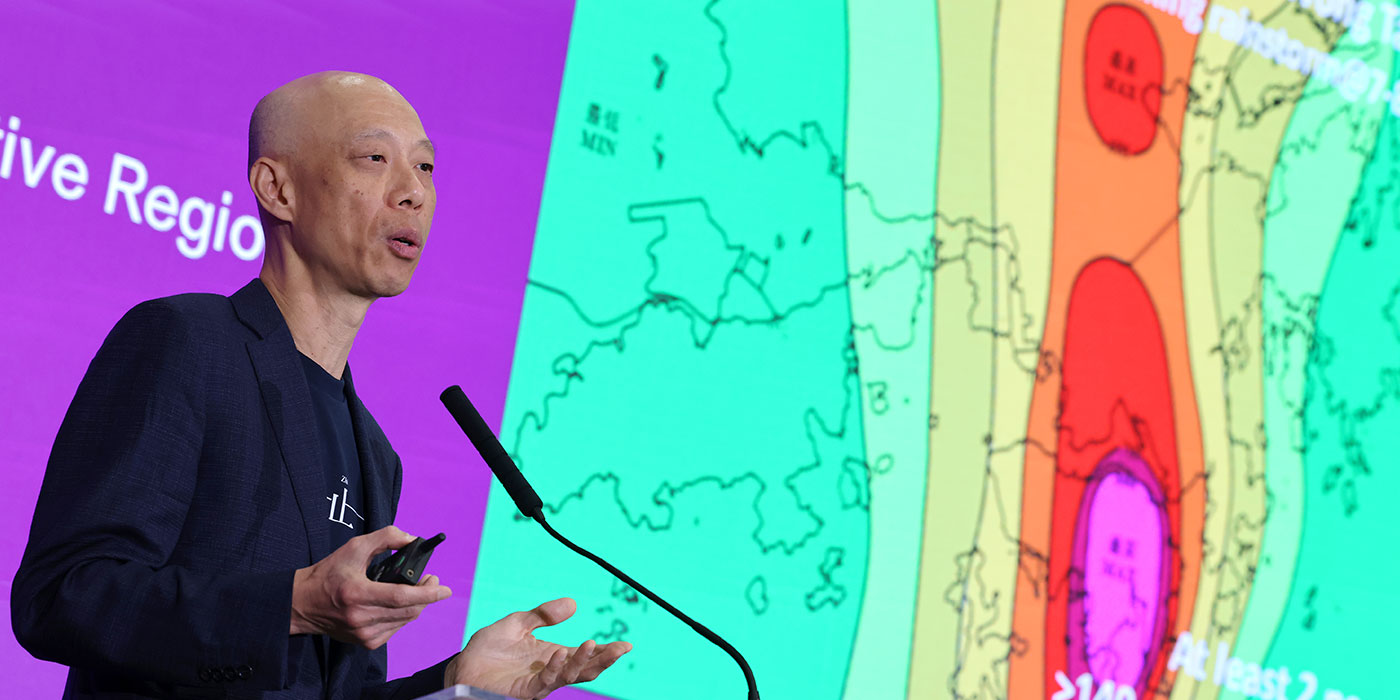
Over the two-day conference, academics from across the world shared research and knowledge on topics ranging from the movement of krill in the Antarctic to the melting of polar ice Especially well-attended was a panel discussion featuring numerous researchers from both China’s Polar Research Institute, as well as the Xue Long 2 itself. Scientists on the panel encouraged those present to continue their drive to save the planet.
“My key message for Hong Kong is that it’s time for the young to understand and engage in Chinese polar programmes,” said Professor Yang Huigen, a member of the Polar Research Institute of China. His colleague, Professor Lei Ruibo, pressed home how climate change and instability affected everyone on the planet. “We know that every place on Earth is connected,” he said. He recounted his own experience of seeing snow in the warmer climes of southern China. “It may feel very distant, especially to youngsters growing up in the south, but in actuality, these events are deeply linked to everything around us.”
Face to face with Antarctica
On the second day of the conference, the younger generation had a once-in-a-lifetime opportunity to learn about life and research in Antarctica. Over 330 students from both CUHK and schools around Hong Kong gathered for a dialogue with Luo Guangfu, Senior Engineer at the Polar Research Institute of China, and representatives from the Zhongshan Station base in east Antarctica, participating via Zoom. Their sharing was facilitated by Hong Kong-born climate advocate and social entrepreneur Natalie Chung, the inaugural ‘MoCC Scholar’ of CUHK’s Museum of Climate Change who has herself been on a polar expedition.
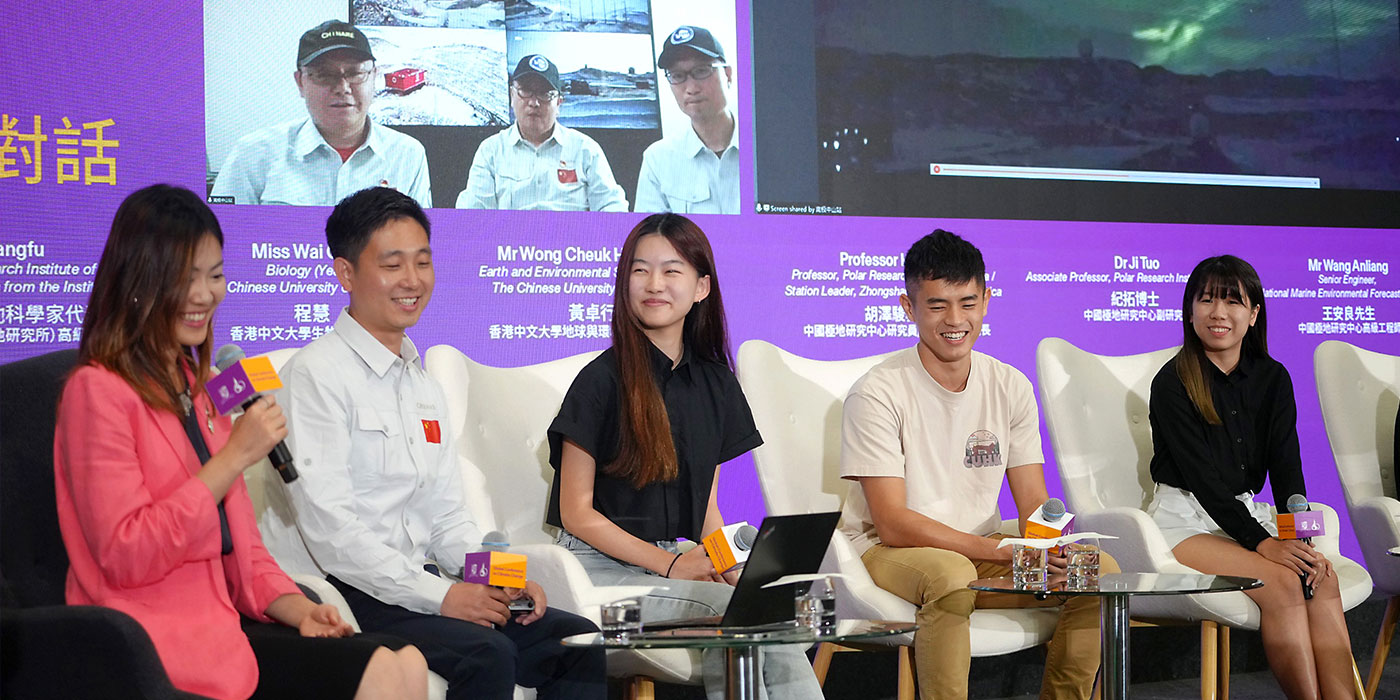
The students posed many questions about life on the frozen continent more than 12,000 kilometres away. “We hear a lot about the Northern lights, but have you seen the Southern lights over the Antarctic?” asked one student. “Have you seen any unique species on the ice?” asked another. A third asked how the scientists adapt to the hostile weather in Antarctica, and whether it affects their mental and physical health. “It depends on whether you are conducting scientific missions outside the station,” said Dr Ji Tuo, one of the scientists posted at Zhongshan station. “But it is clear that here, you experience both faces of the Antarctic: its gentleness, but also its cruelty.”
When asked about his biggest takeaway from years of working on the Xue Long 2, Luo said without hesitation: “For us, the biggest thing we’ve learned is that teamwork is essential.” He looked out into the gathered crowd. “In the face of nature, we are infinitesimal; yet when we are a team, then we can achieve things in the natural world.”
by Chamois Chui
photos by LCT and D Lee

